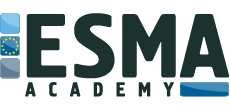Tuesday 23/09
13:00 – 13:15 Welcome and introduction
13:15 – 14:15 Material science & chemical pre-treatment
14:15 – 15:00 Pre-treatment in inkjet printing
15:00 – 15:30 Break
15:30 – 16:30 Inks and ink formulation
16:30 – 17:00 Sustainability aspects
Wednesday 24/09
13:00 – 14:15 Studying inks, substrates and their interactions
14:15 – 15:30 Inkjet printing and Inkjet printing machines
15:30 - 16:00 Break
16:00 – 16:30 Post-treatment in inkjet printing
16:30 – 17:15 Colour & colour calibration
17:15 – 17:45 Characterisation of textiles and prints
All times are Central European Time (CET)
Thursday 25/09
13:00 – 14:30 Sustainability analysis for textile processes and products
14:30 – 15:00 Break
15:00 – 15:45 Microfactories, automatization & robotics
15:45 – 16:30 Digital finishing center
16:30 – 16:45 FAQ & closing session
THEORETICAL BLOCKS
Materials: textile substrates, dyestuffs, textile auxiliaries, thickeners, fixation of dyes, new fibres and inks, environmental impact of materials
Textile chemistry and chemical pre-treatment: chemical pre-treatment of textiles, alkaline treatment, bleaching, mercerization, wetting, thermofixation, finishing, environmental impact of pre-treatment
Inkjet pre-treatment: influence of pre-treatment on printing quality, surface tension, hydrophobic and hydrophilic finishing, binders, thickeners, cationic chemicals, dye specific pre-treatment, environmental impact
Inks & ink formulation: ink ingredients, grinding of pigments, dispersions, particle size, viscosity and rheology, surface tension, additives, ink formulation, degassing, ink filtration, functional inks
Studying inks and interactions with textiles: stability testing, surface tension and wetting analysis, analysis of surface tension, dispersive and polar parts of surface tension, prediction of wetting behaviour, ink optimization, emulation of printing process using picodrop dosing system, practical demonstrations
Printing: inkjet printing heads, printing technology and printing parameters, industrial printers, printing resolution, add-on, overprinting, digital printing of functions
Post-treatment: drying and fixation with heat, steaming, fixation with calendar, UV-fixation, LED-fixation, washing
Characterisation: Surface tension and contact angle, suction velocity, bending rigidity, colour space and colour measurement, contour sharpness/printing quality, fastness properties
Colour management/calibration: colour theory, theory colour linearization and calibration, colour correction, calibration dessin, automated colour measurement, colour management software
Sustainability analysis for textile processes and products: concept of circular economy, LCA concept and examples, MFCA ecological and economical models and analysis, MFCA models for textile processes such as digital printing, weaving, spinning & live demonstration of Umberto LCA , Multicriteria analysis, live demonstration of Promethee tool
Workflow and microfactory: concepts of digital textile micro factories (DTMF), application scenarios, sustainability aspects and environmental impact, made-to-measure workflows, digital twins, automation, robotics and AI in the DTMF
Digital finishing center: a look into the future of textile finishing: an autonomous, AI-driven digital finishing center operates 24/7, supports multiple brands within a near-shoring network, minimizes virgin stock, and rapidly adapts to evolving processes
The follow-up practice course will be scheduled at the laboratories of DITF in Denkendorf after reaching a minimum number of participants.
For whom
The “Digital Printing on Textiles” course is open to everyone who wants to learn about the technology behind digital textile printing and specific application requirements. We welcome printers, print service providers, textile manufacturers, suppliers, developers, chemists and all those impacted by the shift to digital production processes. Participants will receive insights in the procedure of inkjet printing on textile materials and accompanying topics such as textile chemistry and pre-treatment, ink formulation, curing techniques, colour management and characterisation of textile materials and printing quality. The participants will be able to decide if and to what extent inkjet printing technologies can be applied in their own production. Participants do not need to have any special previous knowledge.
Speakers and tutors
• Dr Peter Oberschachtsiek, DataPhysics Instruments
• Thomas Poetz, 3T Inkjet Consulting
• Dr Reinhold Schneider, DITF Colour and Functional Printing
• Dr Jürgen Seibold, DITF Management Research
• Dieter Stellmach, DITF Management Research
• Dr Thomas V. Fischer, DITF Management Research
ESMA Certificate
Participants will receive a certificate after attending all theoretical and practical sessions.
